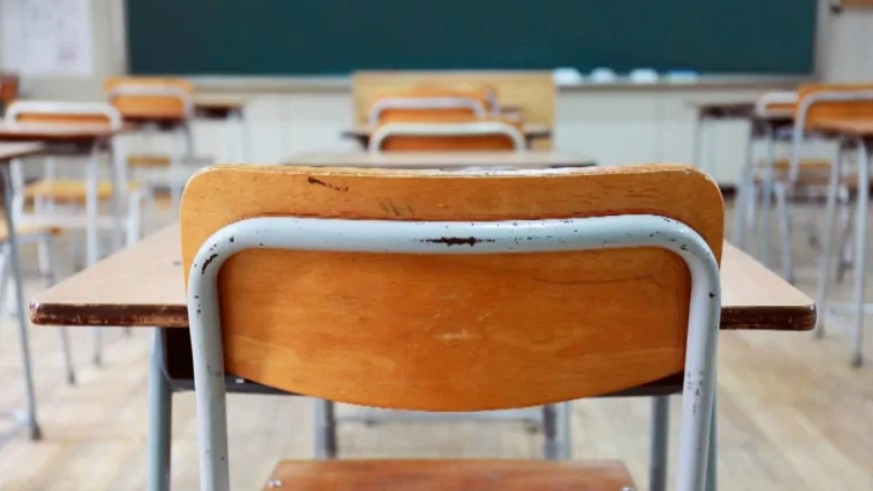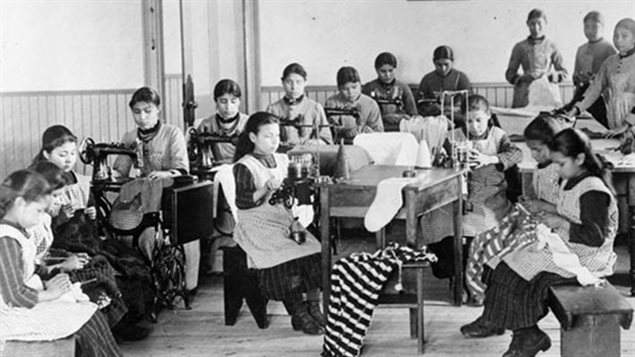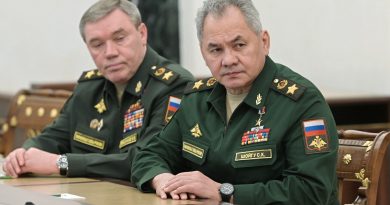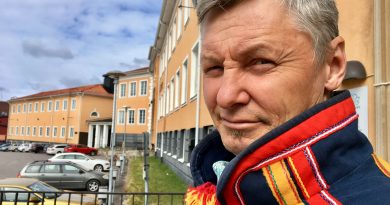Dene national chief says Canada’s Northwest Territories should create own school curriculum

‘It’s time that we step up and take ownership of our education,’ says Norman Yakeleya
Alberta’s decision to renew its education system could lead to a change in the course of learning in the Northwest Territories.
The province is coming under fire for proposed changes to its K-6 curriculum that critics are calling Eurocentric, dismissive of Indigenous perspectives, and not based on research about how to teach young children.
The N.W.T. has used portions of Alberta’s K-12 curriculum and provincial exams since the 1970s. Dene National Chief Norman Yakeleya said it’s time for the territory to create its own school curriculum, independent from other jurisdictions.
Children are already having a difficult time finding themselves in the education system and are suffering because of it, he told CBC News.
Yakeleya fears the changes could limit the growth of students in the N.W.T.
“It’s time that we step up and take ownership of our education,” he said.
Education department reviewing alternatives
The N.W.T.’s Department of Education, Culture and Employment has said it’s not feasible to create a “made in the North” curriculum. The N.W.T. is a comparatively small jurisdiction, so to create a completely independent curriculum would be challenging, said a spokesperson for the department, Christina Carrigan, in a statement to CBC News.
However, Carrigan said they’re reviewing alternatives and that Alberta’s curriculum is “quickly becoming outdated.”
Last October, CBC learned that Alberta curriculum advisers recommended references to residential schools be omitted from the curriculum until after Grade 4, arguing that it was “too sad” to learn about.
That goes against one of the Truth and Reconciliation Commission’s calls to action, which says an age-appropriate curriculum on residential schools, treaties and the historical contributions of Indigenous peoples be mandatory requirement for students from kindergarten to Grade 12.
“Residential schools are a dark chapter in Canada’s history that has been covered under a blanket or a cloak of secrecy,” Yakeleya said.
Many of those who live in the N.W.T. are relatives of children who were forced to attend residential schools, or survived resident schools themselves.

“When you come from a dehumanization process, and [are] told as a six-year-old boy or a six-year-old girl that you have the language of the devil, that you’re no good … and you grew up with that? It sticks,” Yakeleya said.
“We’re moving beyond that with some brave people,” he said, adding that education is a necessary part of healing and reconciling. That’s part of the reason why he’s calling for a curriculum that’s made in the North.
The pandemic has provided a moment of opportunity — a moment to pause, reflect, and go about things differently than what has become routine, Yakeleya said.
“The days of reconciliation are here,” he said.
Jane Arychuk, the former president of Aurora College, is conducting curriculum research with the Dene First Nation.
They hope to partner with the Department of Education, Culture and Employment and to play a stronger role in “what is taught, how it is taught, who it is taught by, [and] who it is governed by,” she said.
Arychuk said the N.W.T. is currently a “trailblazer” in the residential school curriculum.
Following Alberta’s curriculum would be a ‘huge mistake’
Critics of the proposed changes to the Alberta curriculum also say it shifts learning toward a more systematic approach, focused around memorizing facts and events, rather than critical thinking and creativity.
That is a concern for Chelsea Thacker, executive director of the Rainbow Coalition, an LGBT advocacy and education group based in Yellowknife.
They said children don’t all conform to one learning style and deserve to learn in ways that embrace their individuality.
The proposed changes are also markedly racist, said Thacker.
“Following Alberta [would be] a huge mistake. All you’re doing is proving to the people who live here that they don’t matter and we don’t see them in the education system,” they said.
Learning about painful histories, such as residential schools, is necessary, said Thacker.
“Why aren’t we listening to the groups of people who have been telling us for so long that we need to learn about these things so that we don’t repeat history?”
Related stories from around the North:
Canada: Continuing education a priority for new Yukon University president in Canada’s North, CBC News
Sweden: Can cross-border cooperation help decolonize Sami-language education?, Eye on the Arctic



